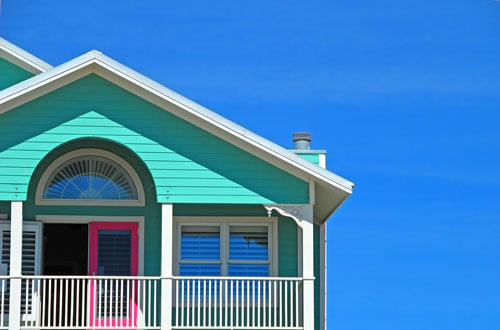
Pro: Vacation Rental Income
If your potential second home is in an area that attracts renters, you may be able to use your house to generate extra income. After all, if it's a second home, you won't be spending all of your time there. You can use this opportunity to rent your house and generate income that can be used to subside your mortgage, or even more if you are able to rent on a consistent basis. Your rental income can even help fight the costs of the depreciation on the actual house over the course of your ownership.
Pro: Tax Benefits
Just like your primary residence, owning a second home can provide you with some tax benefits you may not have been aware of, according to realtor.com. If buying a second home puts you over the $1 million debt threshold, you may be able to write off all of your interest on your loan payments [1]. If you plan to use your second home to both vacation and generate rent revenue, you also may be able to deduct a portion of any rental-related expenses come tax season [1].
Pro: Potential Appreciation
Notice that this doesn't say investment opportunity; while owning a home can save you money compared to renting over a number of years, The Wall Street Journal has cited closing costs, maintenance expenses, and low rates of return as reasons you shouldn't necessarily buy a home as an investment opportunity [2]. However, a home, unlike a car or almost any other type of good, has a reasonable possibility of appreciating over your term of ownership.
Con: The Challenge in finding renters
Before you start dreaming about the perfect property that pays for itself through rental income, take a step back. "Every day that an investment property sits empty means a loss in profitability to an investor," says real estate agent Rhonda Mogul in an Investopedia article [3]. You should be ready for the possibility of paying your mortgage without rent income (more on that below.)
Con: Struggling to Sell Your Home
If you ever decide to sell your house, you may have difficulty getting it sold. It’s important to remember that even if your house has appreciated in value, you can't realize that gain without selling your home. It may take many months to find the right buyer.
Con: Affordability
An ill-timed purchase of a second home could be a financial disaster. Before you start shopping for a second home, you need to make sure you can actually afford it. Learnvest recommends that you evaluate important aspects of your financial situation, like high interest debt, college savings for your children, and the status of your retirement funds before taking the plunge on a new home [4].
Con: Special Attention and Maintenance
Over the course of your ownership, your home will need attention to ensure it retains value, and is compliant with all renting regulations. As the owner, you will either need to pay for a landlord to take care of your house, or you will need to roll up your sleeves and do it yourself.
Sources:
[1] 5 Tax Benefits of owning a second home, Realtor
[2] Don't Buy a home as an investment, Wall Street Journal
[3] Does it make sense to buy a second Home, Investopedia
[4] 8 Questions you should ask yourself before buying a second home, Learnvest